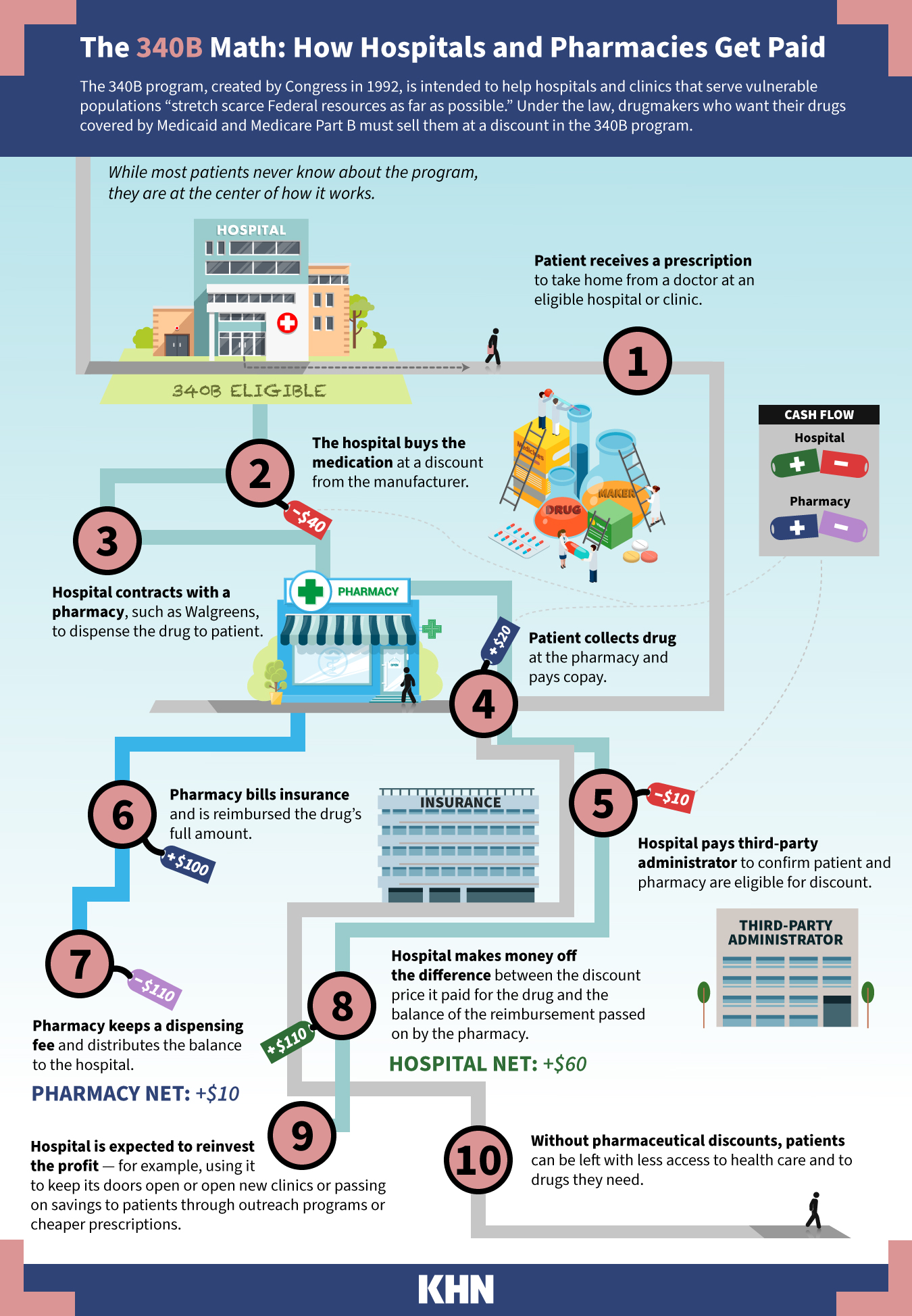In early July, as the covid-19 pandemic slammed rural America, the president of a small Kansas hospital sat down on a Friday afternoon and wrote the president of the United States to plead for help.
“I do not intend to add to your burden,” said Brian Williams, a retired Army lieutenant colonel and Desert Storm combat veteran. He said his hospital, Labette Health, was “like a war zone,” inundated with unvaccinated patients. A department head had threatened to resign, saying he could not “watch one more body be carried out.”
But Williams wasn’t seeking pandemic relief.
Instead, he asked President Joe Biden to confront pharmaceutical manufacturers Eli Lilly and Co., Novo Nordisk and others for refusing to honor a federal drug discount program for hospitals and clinics. The program gives Williams millions to pay staff members, ensure remote clinics remain open and provide charity care for patients unable to pay, he said.
“During a global pandemic, I think health care workers deserve a little bit more respect than to have resources taken away,” Williams said in an interview with KHN and InvestigateTV. “Every one of those [drug] companies, I looked them up, and they were not suffering tremendous [financial] losses, as hospitals were.”
Eli Lilly’s stock price increased nearly 40% and the company’s value rose by $59 billion in the first seven months of 2021. In the same period, Labette Health lost $1.2 million in revenue just from the missed savings on prescriptions, Williams said.
Lilly and other manufacturers, though, are holding their ground. They refuse to offer discounts to thousands of hospital-contracted pharmacies, saying the program has grown beyond its intended use and lacks federal checks and balances against duplicate discounts and other abuses. In lawsuits, they contend the billions in discounted sales they provide are rarely passed on to patients and instead are swallowed up by middlemen like contract pharmacies and third-party administrators.
Congress created the so-called 340B program in 1992 to provide extra funding for hospitals and clinics, especially those serving the poor and elderly. The purpose, lawmakers wrote, is to “stretch scarce Federal resources as far as possible, reaching more eligible patients and providing more comprehensive services.”
As Big Pharma and Hospitals Battle Over Drug Discounts, Patients Miss Out on Millions in Benefits
KHN
November 16, 2021 8:00 am
In early July, as the covid-19 pandemic slammed rural America, the president of a small Kansas hospital sat down on a Friday afternoon and wrote the president of the United States to plead for help.
“I do not intend to add to your burden,” said Brian Williams, a retired Army lieutenant colonel and Desert Storm combat veteran. He said his hospital, Labette Health, was “like a war zone,” inundated with unvaccinated patients. A department head had threatened to resign, saying he could not “watch one more body be carried out.”
But Williams wasn’t seeking pandemic relief.
Instead, he asked President Joe Biden to confront pharmaceutical manufacturers Eli Lilly and Co., Novo Nordisk and others for refusing to honor a federal drug discount program for hospitals and clinics. The program gives Williams millions to pay staff members, ensure remote clinics remain open and provide charity care for patients unable to pay, he said.
“During a global pandemic, I think health care workers deserve a little bit more respect than to have resources taken away,” Williams said in an interview with KHN and InvestigateTV. “Every one of those [drug] companies, I looked them up, and they were not suffering tremendous [financial] losses, as hospitals were.”
Eli Lilly’s stock price increased nearly 40% and the company’s value rose by $59 billion in the first seven months of 2021. In the same period, Labette Health lost $1.2 million in revenue just from the missed savings on prescriptions, Williams said.
Lilly and other manufacturers, though, are holding their ground. They refuse to offer discounts to thousands of hospital-contracted pharmacies, saying the program has grown beyond its intended use and lacks federal checks and balances against duplicate discounts and other abuses. In lawsuits, they contend the billions in discounted sales they provide are rarely passed on to patients and instead are swallowed up by middlemen like contract pharmacies and third-party administrators.
Congress created the so-called 340B program in 1992 to provide extra funding for hospitals and clinics, especially those serving the poor and elderly. The purpose, lawmakers wrote, is to “stretch scarce Federal resources as far as possible, reaching more eligible patients and providing more comprehensive services.”
